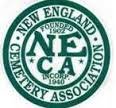Jewish Funeral and Mourning Customs
There are diverse practices and beliefs of those who identify themselves as Jewish, and Willowbrook Cemetery is proud to serve all of the Jewish denominations from the most Orthodox to the most Liberal. We are dedicated to meeting the religious needs of your family and will not impose any particular ritual or observance that is accepted by any of the denominations. Although there are some differences of ritual observance, all Jewish funerals and burials share basic characteristics that derive from the common belief in the sanctity and equality of all human life.
Scheduling the Funeral
It is a Biblical commandment to bury one's deceased immediately after passing (taking legal and logistical considerations into account). It is forbidden to leave the deceased unburied overnight unless it is for their honor (to perform a proper Tahara, obtain shrouds, arrange for a burial plot, gather the family etc.). If the passing took place in the morning, an ideal burial would occur before dusk that same day. If that is not possible it should take place the following day. Setting the time of the funeral requires consultation with the rabbi, the funeral director, and the cemetery.
Burial
Jewish tradition has maintained that burial should be in the earth. Most Jewish cemeteries provide the option for crypt entombment that is accepted by rabbinic authorities.
Cremation
Historically cremation has been rejected, but is accepted by some segments of the Jewish population. Questions regarding these matters should be addressed to your Rabbi for proper clarification and advice.
Embalming and Autopsies
Embalming is not a traditional Jewish practice and in Connecticut a body must only be embalmed if the person died of a contagious disease.
Jewish tradition states that an autopsy is allowed when required by civil law or when knowledge can be gained from an autopsy that could help save others from suffering from the same disease. Routine autopsy outside of these situations should be avoided as they violate the principle of kevod ha-met - respect for the body of the deceased.
Respecting the Final Wishes
If the deceased left specific instructions regarding their funeral and burial, it is an obligation to do the utmost to carry them out. Should a certain request go against Jewish law it is recommended to seek guidance from your Rabbi.
Taharah
When a person departs this world, he or she is washed and purified by a person with special training to perform the Taharah – the sacred rites of washing and purification, which is accompanied by prayer and appropriate Psalms. In most cases following Taharah the deceased is dressed in shrouds.
Shemirah
In traditional Jewish law it states no deceased should be left alone. A shomer (watcher) reads Psalms and prayers on behalf of the deceased.
Casket Choice
Typically Jewish caskets are made of solid wood. Jewish funerals avoid showing vanity and pride thus choosing a simple wooden casket.
Viewing of the Deceased
Unless for identification purposes, public viewing the deceased is considered to be disrespectful and should be avoided.
Donations and Sympathy Gifts
It is believed that greater honor is paid by making a charitable donation as opposed to displaying flowers for the deceased.
K’riah
According to the Torah, one of the essential elements of mourning is the performance of the K'riah (the rending of the outer garments) by first-degree mourning relatives. This symbolizes the tearing of the heart mourners feel at this time. When mourning a parent, one tears on the left side. For all others, one tears on the right side. The placement of a k’riah ribbon may also be accepted.
The Burial ("Kevurah")
The body is returned to the earth, this is considered the final act of kindness. It is considered a great mitzvah to physically participate in placing the earth on the casket for the burial.
Meal of Consolation (Seudat Havra’ah)
Upon returning from the funeral to the home where Shiva will be observed, it is a ritual to wash one’s hands with water from a pitcher placed outside the door. The washing is performed with a cup of water poured alternatively on both hands and the cup should not be passed directly from hand to hand. After the washing, a meal is provided by friends, neighbors, or a synagogue committee. The meal generally includes foods that are round to symbolize the cyclical and continuous nature of life. Most commonly, hard-boiled eggs (which symbolize the close connection between life and death), lentils, garbanzo beans, and even bagels.
Shiva
In the wake of the death of a close family member, a traditional mourning period known as a shiva is observed. Shiva means “seven”, corresponding to the number of days after the funeral for which this official period lasts. The mourners generally stay at home and receive guests to help them pray and reflect upon their loss. A shiva candle is lit when the mourners arrive home from the burial and typically burns the entire shiva period. A rabbi should be consulted regarding the details of shiva practices.



